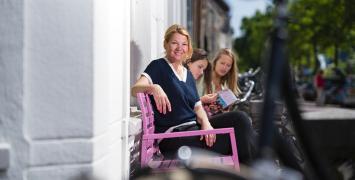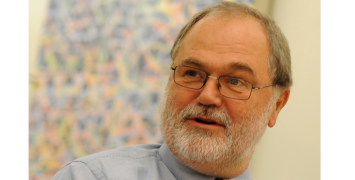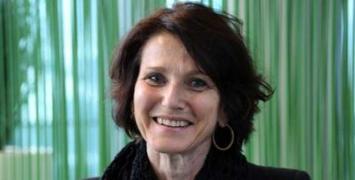Rewriting is rewarding - tips from repeat applicants

ERC funding is open to researchers from anywhere in the world, and grants are also highly competitive, with an overall success rate of 12%. If you are considering submitting a proposal for a grant but are not sure if you have what it takes and whether the odds are worth it, read on! Two ERC grantees who made a number of applications over a seven year period share their stories of persistence and ultimate success.
Investing in your research
Success rates for re-applicants to Advanced Grants calls are slightly above the success rate of first time applicants
Crisanto Gutierrez took four to five months to prepare his very first ERC grant application. He used all the free time he could muster around his research, publications and management commitments as Head of the Program on Genome Dynamics and Function at the Centro de Biología Molecular Severo Ochoa (CBMSO), a joint Institute from the Spanish National Research Council (CSIC) and the Universidad Autónoma de Madrid (UAM). Initially unsuccessful, it took several more applications before he won an Advanced Grant.
The time spent modifying his proposal allowed him to consider different hypotheses for his project PLANTGROWTH, studying environmental stress responses in plants, and to develop the methodology and research questions in his proposal. This ultimately lead him to submit an innovative proposal to identify the principles behind genome replication in relation to the chromatin landscape to improve plant growth – a timely, ambitious idea that stood out among other approaches to drought resistance in plants.
Rather than seeing rewriting as a drain on precious time, reworking his proposal helped him position his research uniquely within the current scientific context. It’s an exercise, he says, that will help him beyond his ERC grant.
The best science is brave; it breaks the convention and investigates new realms
The high-risk proposal
While he acknowledges there are other grants out there, Professor Gutierrez reminds those interested in applying for an ERC grant that the ERC is looking to fund ground-breaking, high-risk research. Understanding what this entails and how to express it in an application poses a challenge for applicants, but is essentially about proposing ambitious, new hypotheses that could ultimately lead to significant breakthroughs. Now, when working as an ERC panel member, Prof Gutierrez unfortunately sees less high-gain research proposals in the applications he reviews. He advises all applicants to question themselves, be more courageous and investigate new fields rather than stay on their established research paths.
If you don’t make the cut, try again
Between 2007 and 2018, over 700 Principal Investigators unsuccessfully applied for ERC Starting Grants (StGs) (including a few who applied for a Consolidator Grant (CoG) – but later applied for and received a CoG. Although many applicants believe they are more likely to be granted a CoG if they have already received a StG, evaluation panels consider every proposal on its own merits, irrespective of whether a researcher has previously had an ERC grant (with the exception of the Proof of Concept Grant, as it can only be given to previously successful applicants who want to bring their research results closer to the market).
The “waiting game” may not be the best approach
ERC records show that early career researchers interested in applying for a Starting Grant prefer to gain experience before applying (the trend is 6 years post PhD). The same is true for applicants just outside the eligibility for one type of grant who wait to build their track record to apply within the next grant bracket.
Statistics show that for StGs, applicants 4 years past their PhD have the same success rate as those 6-7 years post PhD. The same is true for CoGs - the trend for applying is 11 years post PhD even though those with 8 years have the same success rate as those with 12 years’
Unsuccessful applicants tend to reapply as soon as reapplication restrictions allow. Around 90% re-apply within 4 years after failure.
Excellence is ultimately funded

Generally, applicants who managed to reached the second stage of evaluation (Step 2) in their initial application, but then failed to progress to get a grant, double their chances by applying again.
Even applicants who did not succeed at Step 1 of an evaluation have a reasonable chance to win a grant when reapplying - if they properly rework their application!
It’s a different ball game

Cecilia Sahlgren, leader of the Cell Fate Lab at Abo Akademi University in Finland twice unsuccessfully applied for an ERC Starting Grant (StG) but then managed to win a Consolidator Grant (CoG) for her project ForceMorph.
Professor Sahlgren is the only researcher at the Abo Akademi University to have an ERC grant. She had no immediate peers or support at her university to put together what she refers to as an ‘ERC style application’. As ERC funding schemes operate differently to most national funding schemes, she advises applicants to seek help to tackle project budgeting early on and to think in project management terms. Many applicants also find ERC applications difficult because they are more familiar with ‘incremental’ projects. Prof. Sahlgren says applicants need to adjust their mind set from national funding requirements - which are often focused on impact - to the ERC’s demand for purely curiosity driven research.
Choose your panels wisely
Preparing several applications helped Prof Sahlgren consider a more integrated approach between the fields of engineering, computational modelling and molecular cell biology to better understand how changes in blood flow impact vessel structure, for her cardiovascular disease project ForceMorph. She combined two Life Sciences evaluation panels to have her project reviewed by an expert in a secondary panel. As ERC peer review panels are broad, she advises applicants to choose them carefully, potentially to justify an additional cross-panel review, and to ultimately ensure their proposal can also be understood by non-specialists.
Networking is crucial
Talking to peers outside their field and outside of research altogether was fundamental to both Prof Gutierrez and Prof Sahlgren developing their winning proposals. Once Prof Sahlgren had gone through every comment in her evaluation reports from unsuccessful applications and felt she could not improve further, she got in touch with scientists from other universities who had specific background knowledge. She also practiced her interview in front of a mock jury (her own students!) which helped her present a convincing, exciting and feasible project.
Aim high and go for it
Whether you are a young researcher looking for early scientific independence or an established researcher hoping to consolidate your research team and advance your project, the stories of these two determined applicants show that ERC proposal rewriting can be, in itself, a rewarding experience regardless of the outcome. If you are prepared to challenge traditional scientific paths and turn your research problems on their heads, don’t put off applying. Come forward with your original, ambitious ideas - it could be less of a long-shot application than you thought.
More information can be found in the ERC Work Programme. National Contact Points are trained to advise applican





